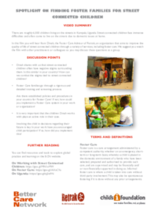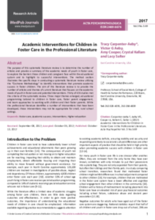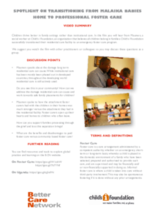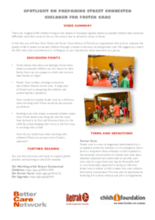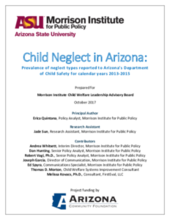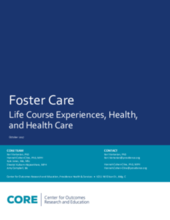Displaying 1501 - 1510 of 2223
In this video, Dinah Mwesigye, a social worker at Retrak in Kampala, Uganda, describes the process of finding foster families for street-connected children who are not able to be reunified with their biological families.
This video from UNICEF Rwanda shows some of the moving stories of children and their new families who have been brought together through the TMM initiative, which reintegrates children who have been living in institutions into families and the community.
The purpose of this systematic literature review is to determine the number of articles and provide a summary of the academic needs of youth in foster care, to explore the barriers those children and caregivers face within the educational system and to highlight to successful interventions.
In this video, Maureen Orogot, a Social Worker at Child’s i Foundation in Uganda, shares the progress Child’s i Foundation has made on transitioning from a residential care model of alternative care to professional foster care.
In this video, Dinah Mwesigye, a social worker at Retrak in Kampala, Uganda, describes Retrak’s work with street-connected children to prepare them for foster care.
This study investigated whether mothers experience changes to their health and social situation after having a child taken into care by child protection services, then compared these outcomes with those found in mothers whose children were not taken into care.
The objective of this project was to review a sample of reports made to Arizona's Department of Child Safety (DCS) with neglect allegations and identify the types of neglect present in the hotline narrative and investigation narrative.
Health Share of Oregon collaborated with the Center for Outcomes Research and Education (CORE) to explore how the foster care experience influences people’s lives and their interactions and attitudes about health and health care.
This rapid review from Coram Voice contributes to the understanding of care leavers’ experiences and is also the first stage in a project to develop a survey of care leavers’ subjective well-being, according to young people’s own evaluations of how they feel about their lives.
Anecdotal and limited objective studies have indicated that children and youth being raised in nonparental settings, such as those with custodial grandparents or in foster care, show a higher need for mental health services. They are often prescribed psychotropic medications at a higher rate. The authors set out to study the prevalence of this trend in a sample group of suburban community health center child and adolescent patients who are being served through an outpatient school-based program of Prince William County, Virginia in the US.

